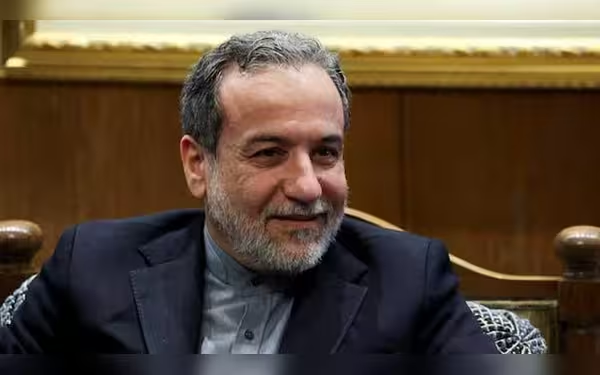Thursday, November 7, 2024 10:13 AM
Iranian Foreign Minister Visits Islamabad to Strengthen Bilateral Ties
- Iranian FM discusses trade and security with Pakistani leaders.
- Upcoming Islamic Summit in Saudi Arabia on the agenda.
- Efforts to mend relations after recent border tensions.
 Image Credits: geo
Image Credits: geoIran's FM Seyed Abbas Araghchi visits Islamabad to enhance bilateral relations, focusing on trade, security, and upcoming Islamic Summit.
On November 4, 2024, Iran’s Foreign Minister Seyed Abbas Araghchi arrived in Islamabad for a two-day official visit. This visit is significant as it aims to strengthen the bilateral relations between Pakistan and Iran, especially in light of the changing dynamics in the Middle East. The Iranian FM is scheduled to meet with key Pakistani leaders, including Prime Minister Shehbaz Sharif and Deputy Prime Minister and Foreign Minister Senator Ishaq Dar.
The Foreign Office (FO) of Pakistan has stated, “This visit provides an important opportunity to advance cooperation and dialogue between Pakistan and Iran on a wide range of areas including trade, energy and security.” This highlights the importance of the discussions that will take place, as both nations seek to enhance their partnership in various sectors.
One of the critical topics on the agenda is the upcoming Islamic Summit in Saudi Arabia, which is expected to be discussed during Araghchi’s meeting with Dar. Additionally, the situation at the Pak-Iran border will also be a focal point of their discussions. Earlier this year, relations between the two countries faced challenges when Pakistan conducted precision strikes in response to cross-border attacks from Iran. This led to a temporary withdrawal of ambassadors and heightened tensions.
Despite these challenges, diplomatic ties were restored, and both countries have shown a willingness to work together. In April, the late Iranian President Seyyed Ebrahim Raisi visited Pakistan to further enhance bilateral cooperation. Tragically, Raisi, along with his foreign minister and several others, lost their lives in a helicopter crash while returning from a dam inauguration near the Azerbaijan border.
The current visit by Araghchi is a crucial step in mending and strengthening the relationship between Pakistan and Iran. As both nations navigate the complexities of regional politics, it is essential for them to maintain open lines of communication and collaboration. The outcomes of this visit could pave the way for a more stable and cooperative future, not only for Pakistan and Iran but also for the broader Middle Eastern region.













